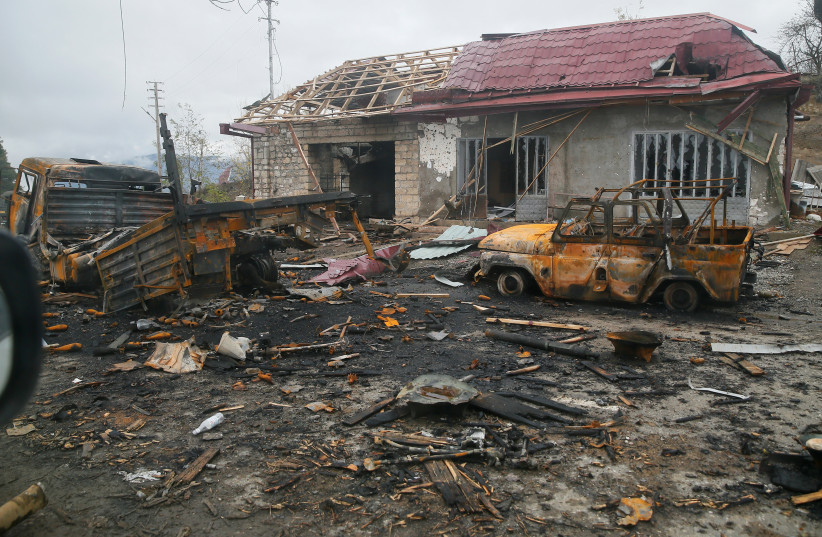The area around Shusha was once called the "Switzerland of Azerbaijan" for its wooded hills and mild climate - a nickname that belies a history of periodic violence between ethnic Azerbaijanis and Armenians stretching back more than a century.
A year and a half ago, Azerbaijani forces retook the town from the ethnic Armenians who had seized it in 1992 for the Armenian-backed breakaway enclave of Nagorno-Karabakh, driving out the 15,000 Azerbaijanis who lived there.
But the Shusha they recaptured, in Soviet times a tourist resort, was a shadow of its former self. The 4,000 or so ethnic Armenians who had settled there - and called it Shushi - fled, leaving behind an empty town still bearing most of the scars of 1992.

Slowly, though, Azerbaijani construction workers are bringing life to the streets.
Reconstruction
The local council building, the police headquarters and the main post office have been restored, and there is scaffolding around the Govkhar Agha mosque and the Armenian Orthodox Ghazanchetsots Cathedral.
The building of three hotels allowed Azeri authorities to choose Shusha as the host of the annual Baku Energy Week conference, and announce that the Emirati firm Masdar would build solar and wind plants for Azerbaijan that together will produce 4 gigawatts of power.
Three supermarkets are open and, from this month, five buses a week link Shusha to Azerbaijan's capital, Baku, bringing local tourists as well as workers.
"When I arrived in Shusha, everything was destroyed," said Elkhan Guliyev, who works for the Azerishiq electricity company. "A lot has been done in these eight months. Electricity and water have been installed, everything has been restored. Many tourists and students come here now."
Jahid Alekperov left when he was just 25. Now 56, he has returned as a construction worker, but longs for the day when former residents will be allowed back to their properties.
He has been to inspect the ruin of his family's old home.
"Only the walls are left from it," he said, picking at the peeling yellow wallpaper.
"I work for a company that is working to restore the city. But Shusha is beautiful in this state, too."
